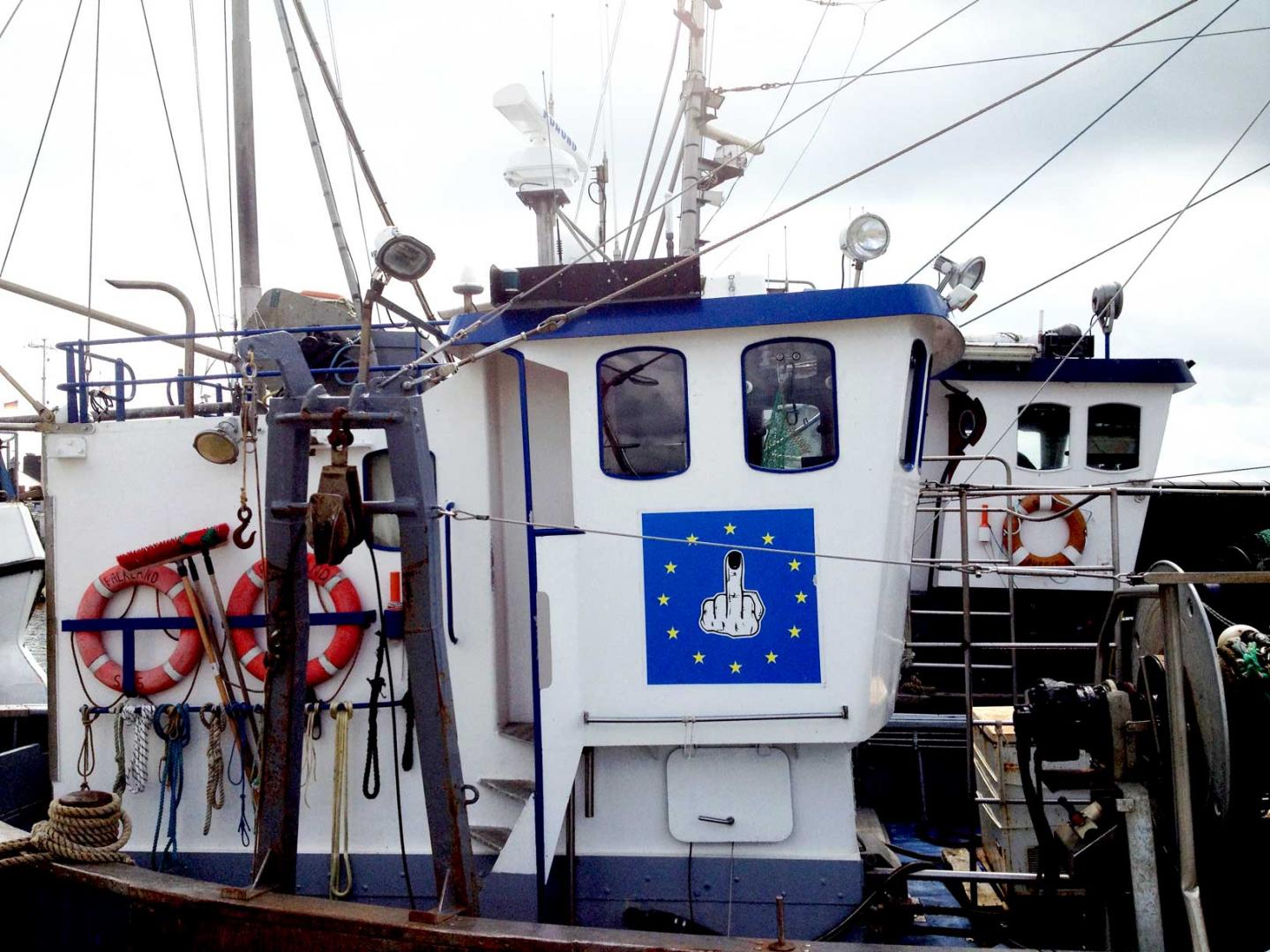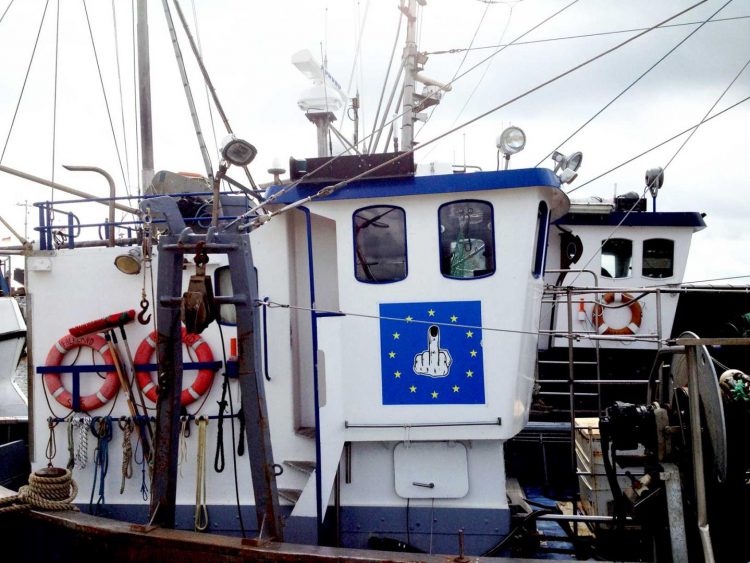Game of chance experiment: In a relationship with an unpopular regulator, the truth is somewhat elastic

Credit: Stefan Drupp
Leipzig/Hamburg/Kiel: Negative perception of a regulatory authority like the EU diminishes the honesty of those regulated, for example, that of fishermen. This is the conclusion drawn by researchers from the German Centre for Integrative Biodiversity Research (iDiv), the Leipzig University, the University of Hamburg and the Kiel Institute for the World Economy from a game of chance experiment with EU-sceptic commercial fishermen and Brexit voters. Among other things, the findings, published in the European Economic Review, help to assess the effectiveness of unmonitored EU fisheries regulations. The experiment also revealed that the fishermen were more honest than students.
That the EU does not enjoy a good reputation among German commercial fishermen has been confirmed by many surveys, but what influence this scepticism has on honesty when, for example, complying with rules, has hitherto been unclear. In order to find out, the three economists Prof Martin Quaas (iDiv, Leipzig University), Prof Moritz Drupp (University of Hamburg) and Prof Menusch Khadjavi (Kiel Institute for the World Economy) conducted a game of chance experiment. Each of the almost 900 German commercial fishermen received a letter containing a questionnaire on economic decisions made by fishermen.
All participants were given the prospect of winning a cash prize of up to 100 euros and entering a raffle to win an additional 500 euros. Among other things, they were asked to toss a one-euro coin four times and report back to the scientists how often it came up ‘heads’ or ‘tails’. Each ‘tail’ meant a five-euro win. But not everyone received the same letter: some of the letterheads showed only the logos of the research institutions while others showed part the logo of the EU. 120 fishermen took part in the study.
Statistically, the most frequent result would have to be ‘tails’ twice. Four ‘tails’ or none at all would be extremely rare. In the knowledge that their information could not be verified, some of the participants, as expected, made false claims in their favour and the number of reported incidences of three and four times ‘tails’ was disproportionately high. However, on average four out of five fishermen were truthful – when the letterhead contained only the logos of the research institutions. When the letterhead also showed the EU flag, almost one in three fishermen answered dishonestly.
“The results clearly show: In the absence of monitoring and checks, the level of honesty depends largely on the attitude of those regulated towards the regulating authority – in this case the EU,” says Martin Quaas, head of the Biodiversity Economics Research Group at iDiv and Leipzig University.
Current resentment of fishermen regarding EU policy makes effective regulation difficult
In practice, honesty on the part of fishermen plays an essential role in compliance with fishing quotas and the European Union’s recently introduced discard ban. Since its introduction, fishermen have had to bring the entire catch ashore and count it towards their quota – including unsaleable animals; fish which are too small, for example, and should not be caught in order to support conservation of stocks. The discard ban is intended to encourage more selective fishing techniques; bycatch does not usually survive capture and the unwanted animals are thrown back dead into the sea. This practice is now banned but, so far, checks have rarely been carried out.
“Monitoring would cost a lot of money,” says Moritz Drupp, first author and Assistant Professor for Environmental Economics at the University of Hamburg who began the study at the University of Kiel. “Therefore, the question of how honest fishermen are with an unpopular regulatory authority is of vital interest in regulating public resources such as marine fish.”
Increased dishonesty as a result of suspicion towards an authority can be generalised
However, the tendency towards dishonesty in dealings with the EU is not limited to commercial fishermen. This was demonstrated using the same coin toss experiment with another EU-cynical group: Brexit voters. If the origin of the survey was presumed to be the European Union, dishonest results for personal financial gain were also more frequently reported for this group than if the EU reference was missing. “From this we conclude that dishonesty in dealings with a sceptically viewed supervisory authority can be regarded as generally valid,” says Menusch Khadjavi, also co-author of the study and researcher at the Kiel Institute for the World Economy.
“In the past, EU fisheries regulation was often half-hearted and not very effective; more transparent and effective regulation may well increase fishermen’s confidence in the EU in the long term. Our study shows that the authority would then be able to rely more on fishermen’s honesty,” concludes Martin Quaas.
“Some of the fishermen reported that they found the researchers’ tasks rather childish,” says the Secretary General of the German Fisheries Association, Dr Peter Breckling. “That makes it all the more gratifying to now see the important results of the study.”
The fact that commercial fishermen are not fundamentally or especially dishonest is also shown by another control experiment in this study. This was carried out at the same time with students from Kiel University as the subjects. Less than half of the participants reported their coin toss results honestly.
###
Media Contact
Volker Hahn
[email protected]
Original Source
https:/
Related Journal Article
http://dx.





